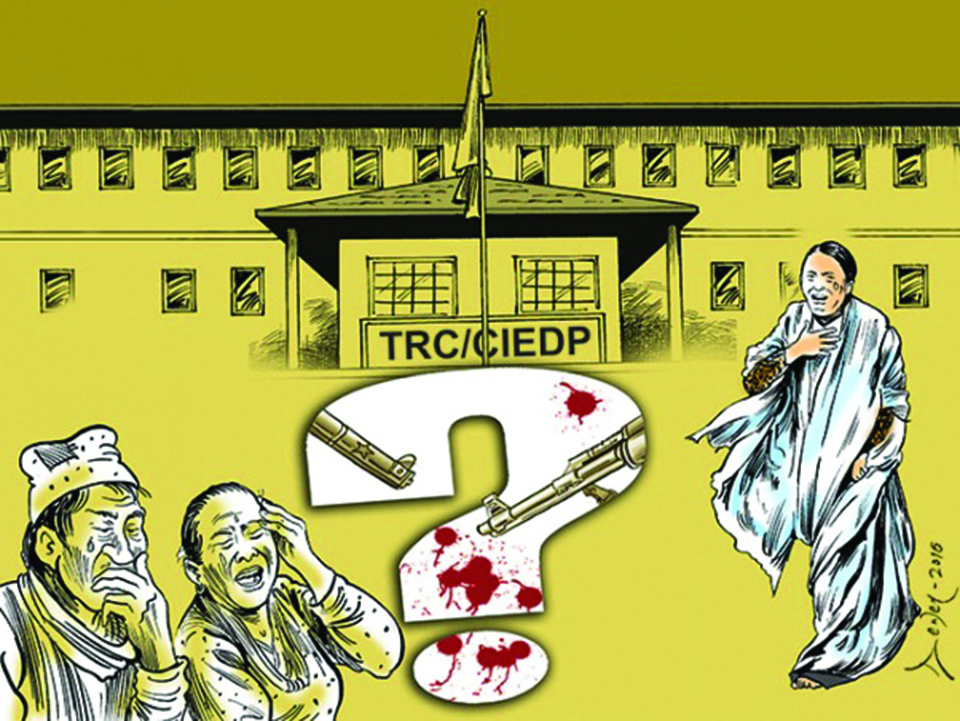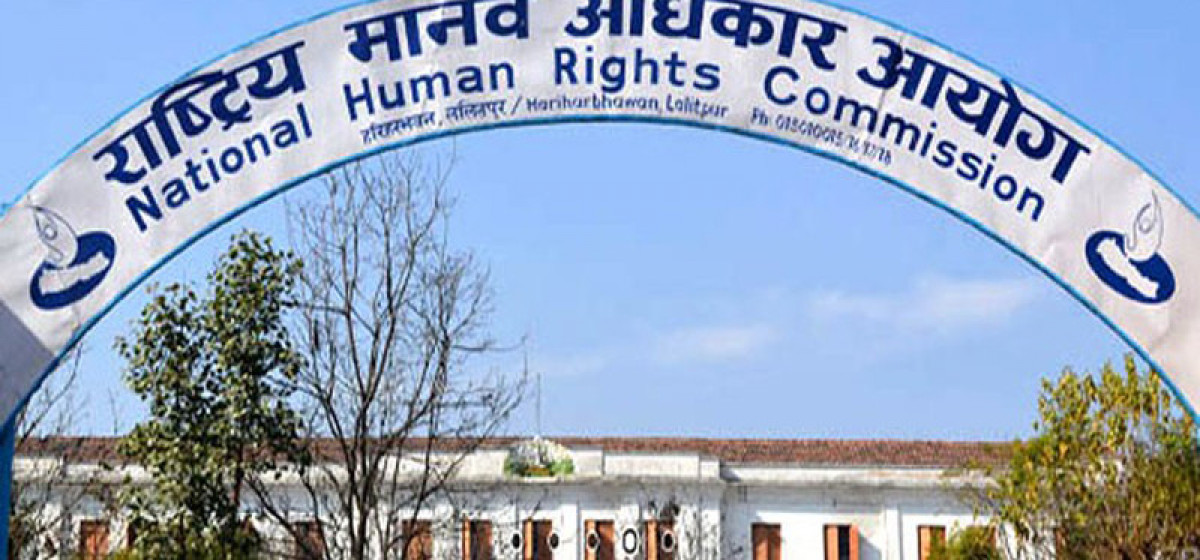KATHMANDU, Feb 1: While terming transitional justice an “internal matter,” Nepal has said that it remains committed to addressing the remaining components of transitional justice in the best interest of the country and people.
In a briefing to the Kathmandu-based diplomatic community on the government’s major policies, priorities and diplomatic engagements here on Friday, Minister for Foreign Affairs Pradeep Gyawali said that the peace process in Nepal had been “fundamentally concluded” — something the international community, mainly the major Western countries and the UN, say remains “incomplete.”
The briefing, given by Foreign Minister Gyawali in the presence of Prime Minister KP Oli and Finance Minister Yubaraj Khatiwada, comes a week after major Western countries and the United Nations urged the government to clarify to the public its plans for taking the transitional justice process forward in 2019. “While we have noticed concerns expressed in certain quarters for the expeditious conclusion of this process, we believe that this internal matter can be resolved with our commitment and efforts,” said Minister Gyawali.
Those issuing the joint statement to urge the government to clarify its plans to resolve transitional justice cases included Australia, Germany, the European Union, Finland, France, Norway, Switzerland, the United Kingdom, the USA and the UN. Earlier, government spokesperson Gokul Banskota had said that foreigners did not need to remind the government to resolve the issues of transitional justice.
Govt’s common resolution places top priority to conclude transi...

While emphasizing that the transitional justice issue will be resolved internally, Minister Gyawali said if Nepali leadership could tackle unthinkable hardcore political issues to arrive at this stage, there is every reason to believe that the leadership has also the ability and willingness to complete this final leg. “So trust in our commitment, willingness and capacity to close this chapter forever in the spirit of the Comprehensive Peace Accord,” he said, while urging the international community to allow Nepal to complete the tasks of transitional justice on its own.
Stating that they had already made clear to all stakeholders that there will be no blanket amnesty for serious violations of human rights, Minister Gyawali said they are committed to ensuring that justice is provided to the victims. “But, we want to ensure that the process of reconciliation is smooth and sustainable, the whole process of ‘dealing with the past’ is credible,” he further said.
Minister Gyawali also sought goodwill and understanding to resolve this process. “As you are aware, given our geographic, demographic, cultural and linguistic realities, there are certain sensitivities in which we would rather need your understanding and goodwill,” the minister said.
Although ambassadors from almost all missions had participated in the briefing, the US ambassador did not attend even though he was in Kathmandu. Analysts have described this as a manifestation of US dissatisfaction over some of the decisions of the government, especially in the aftermath of the statement from a ruling party chairman and the government on the ongoing Venezuelan political crisis.
US embassy spokesperson Andie De Arment, however, said the embassy communicated their plans for American attendance in the briefing to the Foreign Ministry in advance of the event.
During the briefing, Foreign Minister Gyawali also tried to allay concerns that the government was against press freedom. “Free press is an integral part of our democracy. We are committed to press freedom. We believe that everybody has to be responsible in exercising his or her constitutionally guaranteed freedom and rights,” he said in a written statement.
Minister Gyawali also shared that Nepal adheres to constitutionalism and all laws and policies conform to the fundamental principles and norms enshrined in the constitution, and an independent judiciary is there to safeguard people’s rights and freedoms.
Prime Minister Oli’s Foreign Relations Advisor Rajan Bhattarai said the envoys present at the briefing were allowed to ask questions after the written statement of Foreign Minister Gyawali. “Mainly, they had raised questions about preparations made by the government for hosting the investment summit,” he said. While the finance and foreign ministers answered the queries, Prime Minister Oli had thanked the envoys for attending the briefing organized by the government.


































